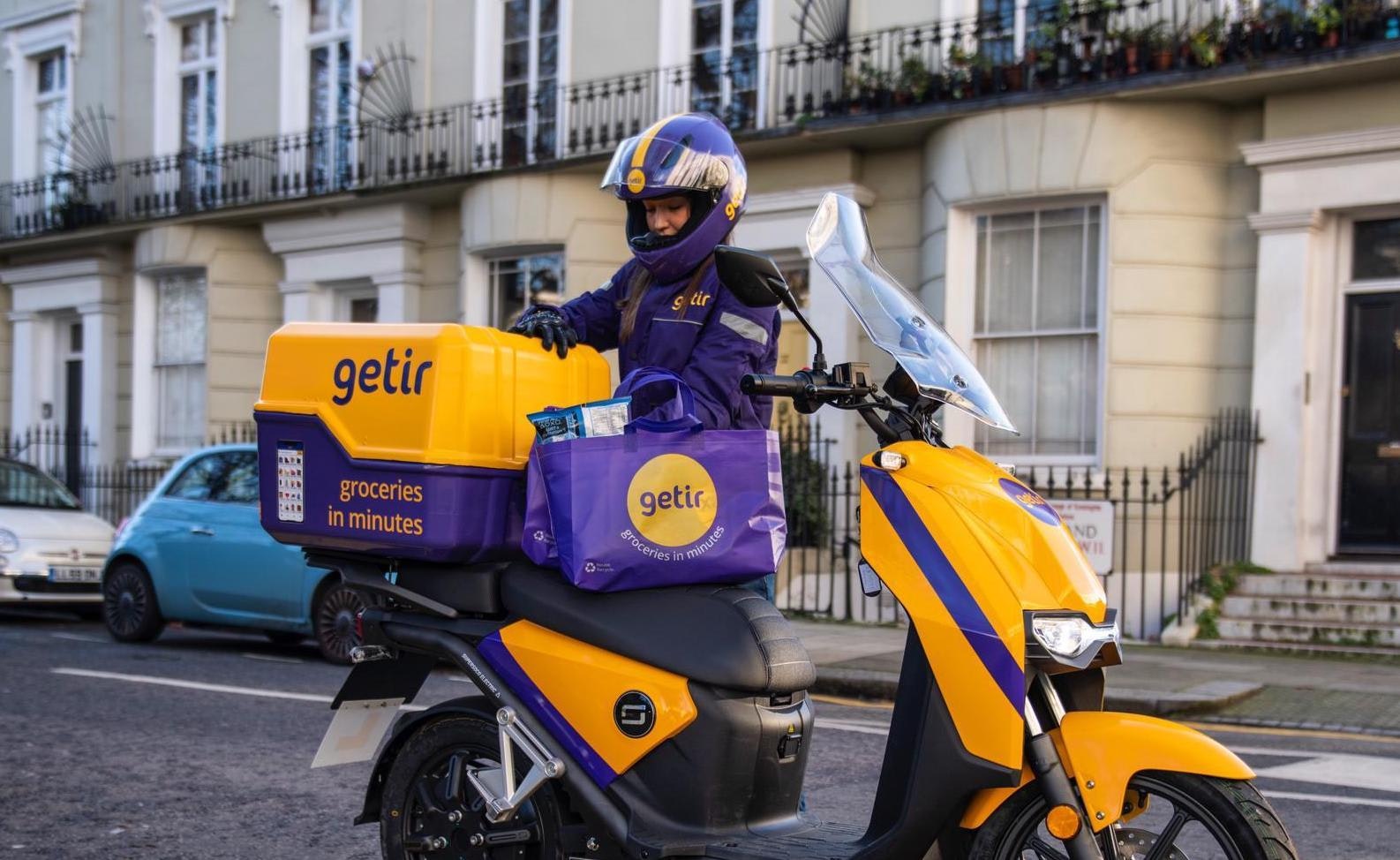Deliveroo is set to expand into 100 more towns and cities across the UK, meaning two thirds of the population will be able to order from the company, as demand surges under coronavirus lockdowns.
The new sites will include Yeovil, Bangor, East Kilbride, King’s Lynn, Scarborough, Llanelli and Exmouth. The company will also expand its grocery offering — now the fastest-growing area of the business — and double the amount of ‘dark kitchens’ it operates worldwide.
The London-based startup, founded in 2013, now works with several major retailers in the UK, including Aldi, Morrisons, Sainsbury’s and Waitrose. It added 36 grocery partnerships to its platform last year.
It’s not the only food delivery company to be paying serious attention to the grocery business; Finnish competitor Wolt is also trying to crack the grocery market, as is Spanish competitor Glovo.
Both reported that major retailers became much more interested in partnering with them to deliver convenience goods to customers when the pandemic hit — and those big companies realised their online delivery offerings weren’t quite up to scratch.
On top of that, last year Wolt opened two ‘dark stores’ to fulfil its customers’ last-minute needs for things like pet and baby food, booze and loo roll. Glovo is also growing a network of dark stores in several cities around Europe.
The pandemic boom
Over the course of 2020, Deliveroo saw a huge increase in business as coronavirus lockdowns prompted restaurants to move to online delivery.
Last year, the number of riders working for Deliveroo doubled, from 25,000 to 50,000, and 20,000 new restaurants also joined the platform across 2020.
However, growth wasn’t all that smooth. In April, Deliveroo announced it was laying off 367 employees as lockdowns initially wreaked havoc on the restaurant sector and many businesses were forced to stop operating, at least in the short term. Hiring at the company also plummeted in April and remained flat for most of the year.
On the flip side, delivery companies like Deliveroo have benefitted from the rapid adoption of ecommerce forced by Covid-19 — and with this latest expansion, it’s clearly hoping to take even greater advantage of it.
“With further lockdown measures now in place across the UK, we want to do everything possible to help households get the food they need and want,” said Carlo Mocci, Deliveroo’s chief business officer.
Dark kitchens are go
As well as UK expansion, the company states it will double the number of ‘Editions’ sites it runs worldwide. The sites, often known as ‘dark kitchens’ or ‘cloud kitchens’, are restaurants that work through delivery only, with no physical dine-in spaces.
While Deliveroo was a pioneer of the ‘dark kitchen’ concept when Editions first launched in 2017, there are now plenty of other companies in this sector. Some, like Swedish dark kitchen startup Curb, which raised a €3.2m round in December, rely on platforms like Deliveroo to deliver the food produced in their kitchens. Other startups with a similar model include London’s Taster and Manchester’s Foodomnia.
Arguably, Deliveroo Editions face more chunky competition from Karma Kitchen, another London-based startup. It raised £252m last year to expand its rental kitchen spaces across the UK and has a unique shift-based model which makes it fairly cheap and flexible for its tenants.
Making friends with restaurants
Deliveroo also aims to bolster the support it offers to existing restaurants hit by the pandemic, by offering 0% commission on pickup orders, faster payments and reduced joining fees. The company also plans to run marketing campaigns to support local restaurants.
However, during the pandemic, the company has come under fire from restaurants for the amount of commission it takes for each order — 35% plus VAT.
The company dropped the onboarding fee it charged new restaurants but has maintained the same level of commission, despite calls from restaurant owners to lower it to improve their chances of weathering the financial repercussions of the pandemic.



